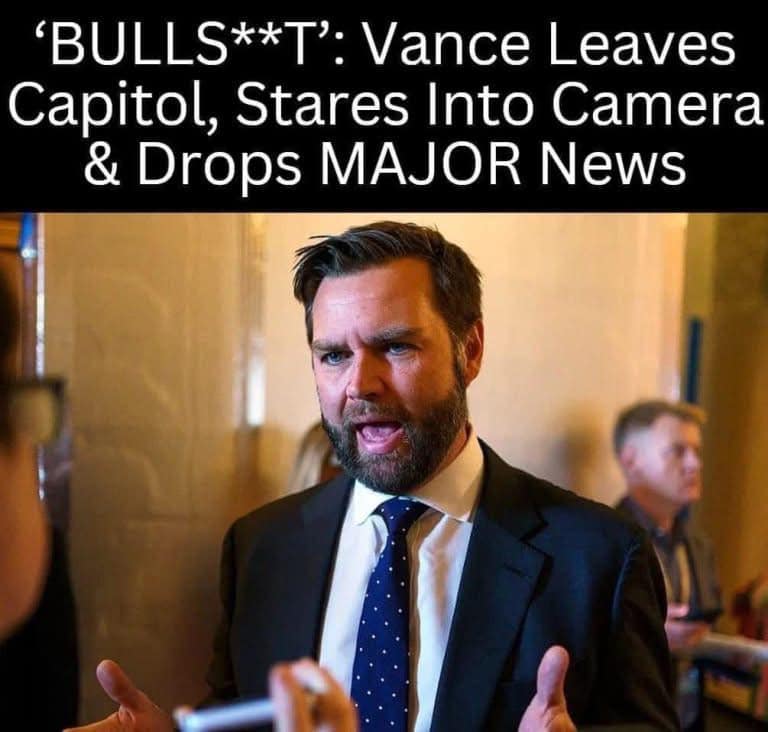
Speaker Mike Johnson and other Republicans met with Vice President-elect JD Vance on Thursday night, only hours after the House of Representatives’ spending accord failed.
In Johnson’s office on Friday, Vance and several other Republican lawmakers discussed government financing and the approaching shutdown deadline. As of Friday morning, it’s unclear what Republicans will do or whether a shutdown is inevitable.
“Mr. Vance, will you agree to any agreement that doesn’t raise the debt limit?” Vance was walking down the hall when a reporter asked.
Vance retorted, “Look, let me say one thing. Because they didn’t want to give the president any negotiation leverage during his first term or the first year of his second, the Democrats voted to shut down the government even though the CR was clean. Second, they would rather topple the government and practice absurd global censorship. They have asked for a shutdown, and I think they will comply.
Vance began to walk away as many reporters continued to shout questions at him regarding the spending bill and what Republicans would do next.
On Thursday night, President-elect Donald Trump’s bill to prevent a partial government shutdown was rejected by the House of Representatives.
Given that the deadline is at the end of Friday, Congress is in danger of a partial shutdown.
The bill did not even get a majority, even though it required two-thirds of the House to pass. 38 Republicans defied Trump and voted against the plan, while two Democrats joined the majority of Republicans in supporting it.
The bill lost by a vote of 174 to 235.
It follows two days of mayhem in Congress as lawmakers squabbled about how to proceed with federal spending, a dispute that Trump and his supporters Vivek Ramaswamy and Elon Musk joined.
In the meantime, the deficit has increased to more than $1.8 trillion and the national debt has reached over $36 trillion.
After GOP hardliners led by Elon Musk and Vivek Ramaswamy rebelled against an early bipartisan agreement that would have delayed the federal funding deadline until March 14 and had several needless policy riders, the legislation was hurriedly crafted on Thursday.
Even though the 116-page bill is far shorter than its 1,547-page predecessor, it nonetheless addresses a number of important issues that are unrelated to maintaining government operations.
The latest version of the deal, which Trump had backed throughout his campaign, postponed the debt ceiling and extended the federal budget deadline to March 14.
It suggested delaying that battle until after the 2026 legislative midterm elections and maintaining the debt ceiling for two years, until January 2027.
In addition to a measure to pay for the restoration of Baltimore’s Francis Scott Key Bridge, which was destroyed by a barge earlier this year, the revised package contained over $110 billion in disaster relief funding for Americans impacted by storms Milton and Helene.
The first salary increase for congressional lawmakers since 2009 and a proposal to revitalize RFK Stadium in Washington, D.C., were not included in the second-round measure.
The amended bill’s language was also drastically condensed, from 1,547 pages to only 116.
“For the benefit of our country, all Republicans, including Democrats, should vote in favor of this bill tonight.” Something that Trump posted on Truth Social.
But before the legislative language was even made public, the bill encountered resistance.
During their closed-door conference meeting on Thursday night to discuss the plan, Democrats chanted “Hell no” in rage at Johnson for breaking their initial bipartisan accord.






